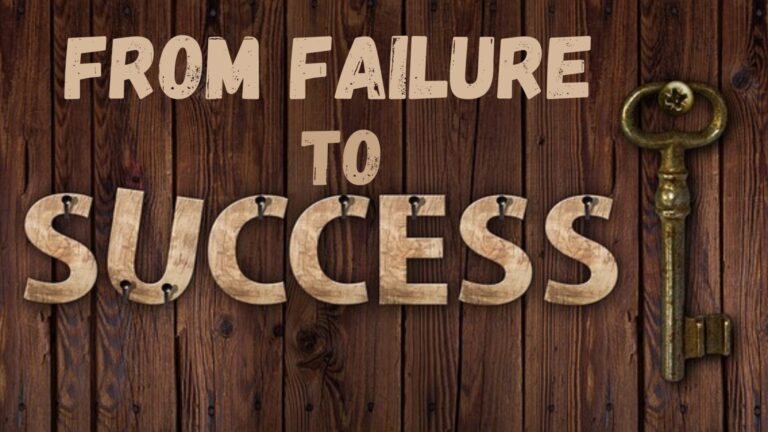Introduction:
Finding True Happiness: Embrace What You Have and Cherish It

In our rapidly evolving world, the relentless pursuit of happiness often takes the form of an unending quest for more—more triumphs, more material possessions, more notable accomplishments. However, genuine happiness doesn’t necessarily arise from acquiring what one desires. Rather, it frequently resides in valuing and cherishing the blessings already present in one’s life. This profound shift in perspective has the transformative power to reshape one’s existence, paving the way for a life characterized by contentment and fulfillment.
Finding True Happiness:The Power of Gratitude and Contentment
Gratitude, a potent emotion, significantly impacts mental and emotional well-being. Focusing on life’s positive aspects cultivates contentment and joy. Research suggests gratitude can reduce stress, enhance relationships, and boost overall happiness.
Tips for Practicing Gratitude:
- Gratitude Journal: Daily, write down three things you’re grateful for. This simple habit shifts focus from what’s lacking to what’s abundant.
- Express Appreciation: Take time to thank others. A simple thank-you note or heartfelt conversation can make a big difference.
- Mindfulness Meditation: Engage in practices that help you stay present and appreciate the moment. Apps like Headspace and Calm offer guided meditations that focus on gratitude.
Loving What You Have:
Learning to appreciate what you have is crucial for true happiness. This doesn’t mean giving up goals, but finding contentment in your current circumstances while working towards them.
Steps to Loving What You Have:
- Focus on the Positive: Shift your mindset to see what’s present. Celebrate accomplishments and blessings in your life.
- Avoid Comparisons: Comparing yourself can lead to feelings of inadequacy. Remember, everyone’s journey is unique and valuable.
- Simplify Your Life: Declutter your space and life, focusing on what truly matters. Simplifying can lead to a deeper appreciation for the essentials.
The Role of Contentment:
Contentment is a state of satisfaction with what you have. It’s about finding peace and happiness in your current situation. Cultivating contentment doesn’t mean settling for less; it’s about recognizing the value in what you possess and finding joy in it.
Ways to Cultivate Contentment:
- Practice Mindfulness: Stay present and engaged in current activities. Mindfulness can help you appreciate life’s often overlooked aspects.
- Set Realistic Goals: Aim for achievable goals that align with your values and passions. Celebrate progress and accomplishments along the way.
- Embrace Imperfection: Accept that life isn’t perfect and neither are you. Embracing imperfection can lead to a more authentic and fulfilling existence.
How does simplifying your life contribute to happiness?
Living a simpler life can significantly contribute to greater happiness by reducing stress, enhancing focus, and creating more time and space for activities and relationships that truly matter. Here’s how simplifying your life can lead to increased happiness:

1. Reduced Stress and Anxiety:
- Less Clutter: Physical clutter can lead to mental clutter. Decluttering your space can create a peaceful and organized environment, reducing feelings of stress and anxiety.
- Fewer Commitments: Saying no to unnecessary commitments and focusing on what’s truly important can lessen the overwhelm of doing too much.
2. Improved Focus and Productivity:
- Clearer Priorities: Simplifying helps you identify and focus on top priorities, leading to more effective time and energy allocation, greater productivity, and a sense of accomplishment.
- Reduced Decision Fatigue: With fewer choices and distractions, you can make decisions more easily and confidently, conserving mental energy for more important tasks.
3. Enhanced Relationships:
- More Quality Time: Simplifying your schedule can free up time to spend with loved ones, strengthening relationships and creating meaningful connections.
- Less Conflict: A simpler, less stressful life can lead to fewer conflicts and misunderstandings, fostering a more harmonious home environment.
4. Increased Mindfulness and Presence:
- Living in the Moment: Reducing the noise and distractions in your life allows you to become more present and mindful, fully experiencing and appreciating each moment.
- Mindful Consumption: Simplifying material possessions can lead to more mindful consumption, helping you appreciate what you have rather than constantly seeking more.
5. Greater Financial Freedom:
- Lower Expenses: A simpler lifestyle often involves cutting unnecessary expenses, leading to greater financial stability and freedom.
- Less Debt: With fewer financial obligations, you can reduce or eliminate debt, leading to a more secure and stress-free financial future.
6. Improved Health and Well-being:
- Better Sleep: A simplified, organized environment can contribute to better sleep quality, essential for overall health and happiness.
- Healthier Lifestyle Choices: Simplifying can extend to your diet and exercise routine, encouraging healthier choices and habits.
7. Personal Growth and Fulfillment:
- Pursuit of Passion Projects: With more time and energy, you can pursue hobbies and projects that bring you joy and fulfillment.
- Self-Reflection: Simplifying your life allows more time for self-reflection and personal growth, helping you align your actions with your values and goals.
By focusing on what truly matters, reducing stress, and creating more meaningful connections, simplifying your life can lead to a deeper sense of peace, purpose, and happiness. Live a more fulfilling life by enhancing your overall well-being.
Why is it important to avoid comparisons with others?
Embracing your individuality is essential for personal well-being, self-esteem, and overall happiness. Here are compelling reasons why avoiding comparisons with others can have a profound positive impact on your life:
1. Acknowledge Your Unique Journey:
- Recognize that everyone’s life journey is unique, with diverse experiences, challenges, and opportunities.
- Focusing on your own growth and development allows you to appreciate your achievements and progress at your own pace.
2. Build Self-Esteem and Confidence:
- Constant comparisons can lead to feelings of inadequacy and lower self-esteem.
- By valuing your strengths and accomplishments, you build a positive self-image and confidence from within.
3. Reduce Stress and Anxiety:
- Comparing yourself to others creates unnecessary stress and anxiety, especially when you feel you fall short.
- Avoiding comparisons allows for greater mental peace and stability.
- Focus on what truly matters to you, reducing the mental burden of measuring up to external standards.
4. Cultivate Authentic Happiness:
- Happiness derived from comparisons is fleeting and dependent on external factors.
- True fulfillment comes from appreciating your own journey and achievements.
- Pursue goals and activities that genuinely interest and fulfill you, rather than being driven by a desire to outdo others.
5. Foster Healthier Relationships:
- Comparisons can breed envy and competition, damaging relationships.
- Focusing on your own path fosters healthier, more supportive connections.
- Develop empathy and compassion for others, appreciating their successes without feeling threatened.
6. Enhance Creativity and Innovation:
- Comparisons can stifle creativity by conforming to others’ standards.
- Embracing your unique perspective encourages originality and innovation.
- Focus on your strengths and interests, allowing for authentic self-expression and more fulfilling endeavors.
7. Achieve Meaningful Success:
- Set personal benchmarks and measure your progress against your own goals for more satisfying achievements.
- Motivation driven by personal goals and values is sustainable, leading to greater fulfillment.
Avoiding comparisons with others allows you to maintain mental and emotional well-being, cultivate authentic happiness, and achieve personal fulfillment. Embrace your individuality, focus on your strengths and values, and set personal goals to lead a more satisfying and meaningful life.
How can I learn to appreciate what I have?
Embark on a journey of appreciation to cultivate a mindset of gratitude and mindfulness. Here are practices to help you develop a deeper appreciation for various aspects of your life:

1. Daily Gratitude Practice:
- “Gratitude Journaling”: Take a few minutes each day to record things you are grateful for. This practice shifts your focus to the positive.
- “Count Your Blessings”: Reflect on specific things or people you appreciate, either mentally or in writing.
2. Mindfulness and Presence:
- “Live in the Moment”: Practice being fully present during daily activities. Notice and appreciate small moments of joy and beauty.
- “Savor Experiences”: Take time to fully enjoy pleasurable moments, whether it’s a meal, conversation, or nature walk.
3. Acknowledging Achievements:
- “Acknowledge Progress”: Reflect on personal accomplishments, celebrate achievements big and small.
- “Recognize Challenges”: Acknowledge challenges overcome and the strength developed as a result.
4. Embracing Minimalism:
- “Declutter”: Simplify your surroundings, letting go of excess possessions. Appreciate things that truly matter.
- “Value Experiences Over Things”: Invest in experiences that bring joy and fulfillment rather than accumulating material possessions.
5. Practicing Self-Compassion:
- “Be Kind to Yourself”: Treat yourself with the same kindness and understanding you would offer a friend.
- “Focus on Inner Qualities”: Appreciate personal qualities, values, and strengths beyond external achievements or possessions.
6. Cultivating Empathy and Perspective:
- “Consider Others’ Perspectives”: Reflect on challenges others may face, appreciate your privileges and opportunities.
- “Volunteer or Help Others”: Engage in acts of kindness and service to deepen appreciation for your blessings.
7. Setting Realistic Expectations:
- “Avoid Comparisons”: Recognize the dangers of comparing yourself to others. Focus on your journey and progress.
- “Adjust Your Perspective”: Shift focus from what you lack to what you have and appreciate.
8. Expressing Appreciation:
- “Say Thank You”: Verbally or in writing, express gratitude to people who have positively impacted your life.
- “Show Appreciation”: Demonstrate appreciation through small acts of kindness and gestures towards others.
Learning to appreciate what you have involves a mindset shift towards gratitude, mindfulness, and self-compassion. By implementing these practices, you can deepen your appreciation for the richness and blessings in your life, leading to greater contentment and fulfillment.
Conclusion
True happiness isn’t a relentless pursuit of more; it’s finding joy and contentment in your current blessings. Practicing gratitude, cherishing your possessions, and nurturing contentment can shift your perspective on life, revealing a deeper, enduring happiness. Embrace the present, treasure your gifts, and witness your life flourish with enrichment and fulfillment.
References
- Emmons, R. A., & McCullough, M. E. (2003). Counting blessings versus burdens: An experimental investigation of gratitude and subjective well-being in daily life. Journal of Personality and Social Psychology, 84(2), 377-389.
- Kabat-Zinn, J. (2005). Wherever You Go, There You Are: Mindfulness Meditation in Everyday Life. Hachette Books.
- Lyubomirsky, S. (2007). The How of Happiness: A New Approach to Getting the Life You Want. Penguin Press.
- Seligman, M. E. P. (2002). Authentic Happiness: Using the New Positive Psychology to Realize Your Potential for Lasting Fulfillment. Free Press.
- Tolle, E. (2004). The Power of Now: A Guide to Spiritual Enlightenment. New World Library.








